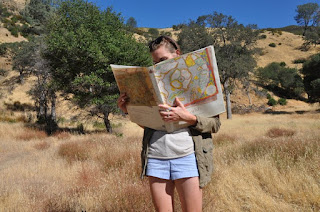Ava Barry is the author of the novel Double Exposure. She also has written the novel Windhall. She lives in Australia.
Q: What inspired you to write Double Exposure, and how did you create your character Rainey Hall?
A: The idea and creative process that led to Double Exposure was very unusual for me. Usually I think of an element of a story -- with Windhall, it was Old Hollywood -- and then come up with a story that features that element.
Double Exposure came to me all at once, the beginning, middle and end. I was drifting off to sleep one night and the whole thing fell in my lap. I've had this kind of idea before, as I'm drifting off to sleep, and if I don't write it down immediately, I usually forget it. For some reason, though, I thought "if this idea is as good as I think it is, it will still be there tomorrow." I set a kind of test for myself. I didn't want to get too excited.
I spent the entire next day writing the outline.
Q: How would you describe the dynamic between Rainey and Melia?
A: It would be easy to mistake it for a romance, but it's actually meant to represent an abusive relationship full of gaslighting and punishment. Melia is a narcissist who refuses to be held accountable, but she's charming and knows how to seduce someone like Rainey, who is compassionate, though short-sighted.
Q: The Publishers Weekly review of the book says, in part, "This evocative novel demonstrates that both the city [Los Angeles] and its magic remain very much alive." What do you think of that description, and how important is setting to you in your writing?
A: Setting plays a large factor in everything that I write, and this might be an unpopular opinion, but I think it's unwise to write about a place you aren't familiar with. There's a misconception among a lot of fledgling creatives that you need to set your story in an exciting city like London, Paris, New Orleans, et cetera -- but I would rather read about a quiet suburb that an author knows well. Vinegar Hill is a great example of this.
Q: Without giving anything away, did you know how the novel would end before you started writing it, or did you make many changes along the way?
A: I knew about the big revelation (it's one of the things that came to me when I came up with the plot) but I wasn't sure how I was going to expose it. I try to have about 80 percent of the outline established when I start writing, but I like to leave some things open-ended so that I can twist things around and avoid being too formulaic.
I read a lot of mystery novels, and watch a lot of movies, and I always enjoy being surprised as a consumer. If I can surprise myself while I'm writing a project, it makes the process a whole lot more enjoyable.
Q: What are you working on now?
A: A nonfiction project that entails a lot of research. Laundry. My garden. I'm about to start a new jigsaw puzzle...
--Interview with Deborah Kalb


No comments:
Post a Comment